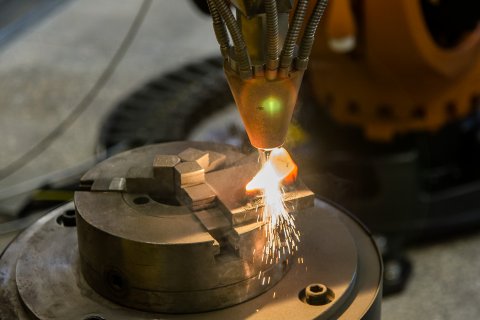Daring scientific tasks set nowadays in front of researchers all around the world require for searching new methods of solutions. Presently, unique high-tech materials are produced for industries, smart technologies of Industry 4.0 get actively implemented, digitalization of metallurgical manufacture is carried out. Work in all these areas is being done at South Ural State University within the frameworks of MetalNet strategy of development of the Institute of Engineering Technology.
“In 2018, strategic areas of development of all Institute of Engineering Technology’s faculties (AeroNet, AutoNet, MetalNet, RoboticsNet, EnergyNet, MetalNet), which correspond with the Decree of the President of Russia on development of science and technology of the country, were approved at SUSU,” says Director of the SUSU Institute of Engineering Technology, Sergey Vaulin. “In the nearest 10-15 years, students of the Institute of Engineering Technology will get oriented at studying such crucial for Russia specialties as digital, intelligent production technology, robotized systems, creation of new materials and construction methods, development of big data processing systems, machine learning and artificial intelligence.”
The SUSU Institute of Engineering Technology’s Faculty of Material Science and Metallurgical Technologies has been working on development of new breakthrough metallurgical technologies and their systematic improvement for more than 65 years. Unique materials are the results of scientists’ activity.
“At the Faculty of Material Science and Metallurgical Technologies, we created material which can solve problems of global ecology, - a sorbent with active nanocenters. It blocks distribution of radioactive substances and cations of heavy metals around open and underground hydro horizons, which allows using it for purification of water in riverbeds and lakes of the Chelyabinsk region. Moreover, together with the Nanotechnology REC we create functional monocrystals on the basis of barium hexaferrite. Using object-oriented modification at atomic level of the crystal structure, we can achieve radical change of properties of the initial material. For example, by partial substitution of iron with aluminum, it is possible to obtain materials for space communications means. And partial substitution of iron with titanium allows applying the material for production of radio-absorbing covers,” says Dean of the SUSU Faculty of Material Science and Metallurgical Technologies, Candidate of Engineering Sciences, Mikhail Ivanov.
.jpg)
.jpg)
Photo: Sorbent; Magnetic monocrystals of barium hexaferrite
Another important objective of the work is introduction of digital smart technologies of Industry 4.0. The global task, set before the scientists, led to formation of new scientific collaborations: nowadays metallurgists work together with programmers, automation and mechatronics specialists, as well as with neural network specialists. This area is put into foundation of the elite bachelor’s degree program in Digital Metallurgy.
Presently, digitalization of existing metallurgical production is the responsibility of such companies as MMK, ChTPZ Group, SMS group and Emerson, which South Ural State University actively cooperates with. Together with the Chelyabinsk Pipe-Rolling Plant, work is being done on development of a system for collecting and processing data on production process of seamless hot-deformed pipes for development of digital production model.
Nowadays, there are laboratories operating at SUSU and covering the entire cycle of metallurgical production, including obtainment of ores, steelmaking, as well as its casting, rolling, forging, founding and welding. This allows conducting research works for a wide range of metallurgical and mechanic engineering companies. Creation of new materials and research of their properties is the responsibility of postgraduate students and staff of the Faculty at the Laboratory of Physical Modelling of Thermomechanical Processes of the Mechanical Engineering Research Institute.

Master’s degree students of the Institute of Engineering Technology will work on obtaining multifunctional gradient covers within the frameworks of project-based education. Projects are to be implemented using engineering capabilities of the International Laboratory of Mechanics, Laser Processes and Digital Production Technology, created in cooperation with SMS group. Moreover, master’s students studying in the specialties provided by the Faculty of Material Science and Metallurgical Technologies will improve technology of ship hull welding using the modern welding robot.
Today the Faculty of Material Science and Metallurgical Technologies of the SUSU Institute of Engineering Technology provides all conditions to implement intellectual potential of young scientists of the university. Specialists in the sphere of materials development are not just working on improvement of the existing technology and equipment; they are also searching for new solutions that would allow hastening the oncoming of Industry 4.0.




